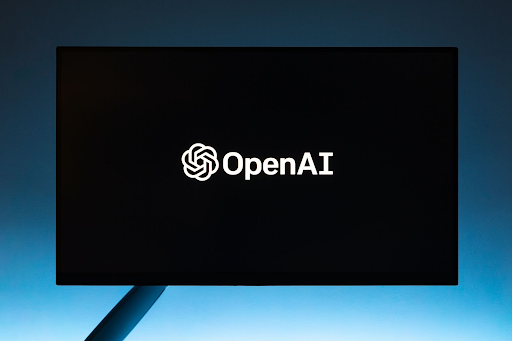What are the benefits of ChatGPT for Accounting?

Contents
Let’s face it. Using ChatGPT for accounting is becoming the buzz phrase as more accounting professionals embrace the latest advancements in artificial intelligence. And, if you are an accountant or a bookkeeper wondering how ChatGPT for accounting will affect your career, you’ve come to the right place.
Our quick guide explores how you can use ChatGPT in accounting business. Moreover, we list how accountants can prepare to stay relevant in the future amidst the fast-evolving artificial intelligence.
Here is the guide:
Understanding the Growth of ChatGPT for Accounting and its Impact on the Industry
Artificial intelligence tools like ChatGPT are computer programs with vast applications to modern business operations. Indeed, these technologies extend, adapt, and apply to most mainstream industries worldwide. They have the potential to improve business processes and disrupt traditional industries like banking and financial services, healthcare, marketing, retail, and logistics.
Notably, the exponential growth and adaptation of artificial intelligence, software Coraltree’s suite of products, and other automation tools are rapidly commoditizing the accounting industry. Yet, if accountants can get creative enough to reinvent their business models around all these technologies, the profession will evolve and survive the avalanche disrupting many industries.
What is ChatGPT?
ChatGPT is an advanced AI language model that can understand natural language and generate human-like responses to questions. OpenAI has had rapid growth since its release in November 2022. Indeed, up to 100 million people signed up within two months of its launch. This popularity is due to the tremendous capability of ChatGPT to train on vast amounts of data and process and analyze the information much faster and more accurately than a human can.
Here are the notable attributes of ChatGPT for accounting:
A Friendly User Interface
ChatGPT opts for a simplified interface accessible to users of all ages and career backgrounds. Here, an intuitive and conversational interface allows users to ask questions and generate appropriate answers in seconds.
Availability
ChatGPT is available to users 24/7, wherever they are in the world. Besides, a ChatGPT android app is now accessible for download on the Google Play Store, applicable to a broader audience via mobile phone devices.
Free Service
Anyone with an account on the OpenAI website can access and use ChatGPT for free. The free ChatGPT version has no usage limitations, making it an excellent chatbot AI for work.
Confidentiality
ChatGPT relies on encryptions to protect input from users. That way, your chat history and personal and financial information remain safe from hackers or malicious third-party companies.
Versatility
Did you know ChatGPT applies to almost all professional fields, including gaming, market research, news, and education? Better still, ChatGPT in accounting business is the new norm.
Accuracy
Finally, recent statistics show that ChatGPT generates answers that are 72 percent accurate. For an advanced machine learning technology in its pioneer phase, this high level of accuracy makes it a relatively reliable tool in business.
With all these positive traits, can ChatGPT solve accounting questions (problems)? Moreover, can you use ChatGPT for accounting?
How to Use ChatGPT In Finance and Accounting

Do you know how to use ChatGPT in finance? Using this artificial intelligence impacts accounting as follows: -
ChatGPT for accounting can automate repetitive and time-consuming tasks, making it a game changer in the accounting industry. Indeed, think of automating data entry by detecting raw data files and extracting the required information into spreadsheets for further financial analysis. Likewise, the OpenAI for finance allows bookkeepers to manage expenses by tracking and categorizing each item to generate reports more efficiently.
Third, ChatGPT for accounting comes in handy during financial reporting. The ai accountant can use ChatGPT to generate financial briefs on crucial economic indicators, stock movements, market trends, and relevant financial news. That way, bookkeepers and accountants assist investors and traders to stay up to date with the latest trends and make informed financial decisions.
Fourth, ChatGPT in CPA firms is a time saver when accountants and bookkeepers file tax returns for their clients. Indeed, the latest version, ChatGPT-4, can handle complex tax codes and correctly calculate a tax deduction.
Finally, accountants and bookkeepers can rely on ChatGPT for accounting for real-time financial insights in detecting fraud. Here, the AI-powered chatbot analyzes historical data and pinpoints any suspicious activities. It is an indispensable tool for internal and external auditors to analyze and identify anomalies in a large volume of transactions from different locations and departments.
From the above discussion, ChatGPT for CPA firms ensures accountants and bookkeepers focus on more complex and high-value tasks like financial analysis, strategic planning, and client communication. Only will artificial intelligence like ChatGPT replace the modern accountant and bookkeeper?
How Will ChatGPT Impact Accounting?
The easiest way to analyze the impact of ChatGPT on the accounting industry is by listing the application as an accounting AI bot. Check it out below: -
Automating Repetitive Tasks
ChatGPT automates repetitive and time-consuming accounting tasks, freeing the accounting professional to focus on strategic and complex tasks. In turn, the modern accounting professional takes on a leadership role and ensures all systems are accurate for report generation.
Fewer Accounting Errors
By analyzing tons of financial information in seconds, ChatGPT for accounting improves financial reporting accuracy. The stakeholders can rely on the audited financial reports to make significant decisions that impact their organizations.
Deeper Financial Insights and Analysis
Since ChatGPT is a data-driven chatbot, accounting professionals can use it to forecast trends, pinpoint patterns, and intercept anomalies for optimal financial performance.
Automated Tax Compliance and Audit Support
ChatGPT automates tax and legal compliance checks by creating the relevant tax and legal reports in the prescribed format and style. Likewise, accounting ChatGPT facilitates audit processes by minimizing the risk of errors.
Challenges of Using ChatGPT in Accounting Business
Despite the benefits of ChatGPT for CPA firm, artificial intelligence faces the following challenges:
Significant Ethical Considerations
Since ChatGPT relies on machine learning, how does it perform when faced with an ethical dilemma? Moreover, what if the data used to train ChatGPT is biased against a certain race, gender, industry, or company? These are some of the ethical concerns still lingering regarding artificial intelligence tools like ChatGPT.
Trust and Reliability Concerns
ChatGPT for accounting has an accuracy of up to 72 percent. In turn, there is significant room for errors and inaccuracies. Likewise, the chatbot generates results based on information available within a particular time frame. In turn, it may not rely on the latest accounting regulations when providing answers to accounting queries.
Questions on Data Privacy and Security
Even though information shared on ChatGPT for bookkeeping is secure, accounting professionals should be discrete and avoid sharing data identifiable to them when using ChatGPT. ChatGPT could use the information shared on chats to train its models. If you do not wish for ChatGPT to use your chat history to train and improve its models, click the three dots next to your name. Then, go to data controls under settings and switch off “Chat history and training”.
Limited Contextual Understanding
There are instances when ChatGPT for finance fails to understand the full context of the questions in the search query. Hence, the answers generated depend on how concisely you frame your questions.
Inability to Tackle Complex Accounting Scenarios
ChatGPT for accounting struggles to comprehend complex accounting scenarios and regulations relating to such fields as hedge accounting, mergers and acquisitions, and revenue recognition.
Costly Continuous Training and Updates
Accounting professionals will have to spend more to ensure artificial intelligence tools like ChatGPT rely on relevant and up-to-date datasets. Here, they may need to provide regular updates about their evolving accounting regulations, industry standards, and accounting practices.
Will ChatGPT Become a Paid Service in the Future?
Yes, it already has. Accountants and bookkeepers need to pay to access the additional ChatGPT features and services. Still, we anticipate the core functions of the chatbot to remain free and accessible to everyone.
Final Thoughts
Then, will ChatGPT for accounting replace the modern accountant and bookkeeper? No. Even though ChatGPT can automate repetitive tasks and compliance, minimize errors, detect fraud, and support audits, it cannot offer personalized financial advice unique to the client’s needs and preferences. And, how can bookkeepers use ChatGPT? The modern accounting practice can adopt ChatGPT in its non-core functions to facilitate their deliverables and match customer expectations. You can also use cloud based accounting tools such as Basil Practice Management for accounting and tax to manage, store important documents and communicate with clients effectively. Basil is offering a special 15 day free trial along with a personalized demo with a product expert. Try Basil for free now by signing up and booking a demo.